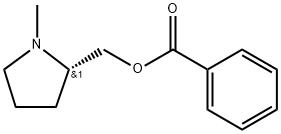1431628-22-6
 1431628-22-6 結(jié)構(gòu)式
1431628-22-6 結(jié)構(gòu)式
物理化學(xué)性質(zhì)
常見(jiàn)問(wèn)題列表
Brain nicotinic acetylcholine receptors (nAChRs) is a heterogeneous family of pentameric acetylcholine-gated cation channels, which is a molecular target for the treatment of alcohol abuse and dependence.
(S)-UFR2709 (50-100 μg/ml; 3 min and then maintained for another 5 min in a holding tank before testing the swimming behaviour in the test tank for a period of 5 min) produces a decrease in the bottom dwelling for NTT test, and UFR2709 induces a significant and dose-dependent decrease in bottom dwelling time to 52.9 and 87.0 s, respectively at 50 and 100 μg/ml.(S)-UFR2709 (50-100 μg/ml) decreases nicotine-evoked mRNA expression of α4 nACh receptor subunit, but UFR2709 has less effect on α4 nACh receptor subunit in the brain of adult zebrafish.(S)-UFR2709 (intraperitoneal?injection; 1-10 mg/kg; daily; 17 days) reduces ethanol consumption and ethanol preference and increased water consumption in a dose-dependent manner. The most effective dose of UFR2709 is 2.5 mg/kg, it induces a 56% reduction in alcohol consumption.?(S)-UFR2709 does not affect the weight or locomotor activity of the rats.
| Animal Model: | High-alcohol-drinking UChB rats |
| Dosage: | 10 mg/kg, 5 mg/kg, 2.5 mg/kg, or 1 mg/kg |
| Administration: | Intraperitoneal?injection; 1-10 mg/kg; daily; 17 days |
| Result: | Did not affect the weight or locomotor activity and reduced ethanol consumption and preference. |